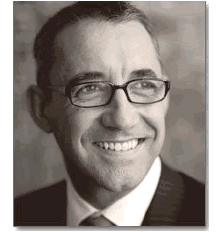5 Money Secrets


Time to Get Honest About Money
The core of this book lies in the Money Code, which comprises 5 Money Secrets. The five secrets will provide insights into your decision making and help you evaluate how you think and feel about money and assess the way you make financial decisions. These simple, eternal truths have moved countless individuals and families away from the belief that finance is a
strictly intellectual endeavor. More importantly, these five uncompromising truths have put people just like you in the driver’s seat of their financial lives, which has given them genuine, lasting control over their money.
5 Money Secrets:
Inspiring New Ways to Think About Your Money
One of the main reasons you and I are working together is that you’re tired of being driven by fears and desires. Throughout this lesson, I’ve pointed out that identifying finance as a strictly intellectual endeavor has not served your needs. My goal is to lead you toward living your one best financial life. Although what money alone can do is limited, its power to create happiness or cause suffering is immense. The following 5 Money Secrets provide a powerful way to guide your decision
making so that you can take genuine control of your financial life.
1. Your life will be filled with tough choices.
2. Your entire life is determined by how you make decisions.
3. Your biases will affect every decision you make.
4. You will be distracted by things that really don’t matter.
5. You must have a good process to make good decisions.
Money Secret 1: Your life will be filled with tough choices.
You Want It All
Part of consumer culture is that from early on, we’re taught to think big. Every American can dream of owning a nicer car. We drool over bigger TVs. We vow to take more vacations. We fantasize about fancier shoes and jewelry. With a combination of envy and disdain, we read stories of the super rich with their mega mansions and private jets. Sometimes it’s a blessing; other times, it’s a curse. In either case, we humans have a limitless ability to dream bigger and to always elevate our aspirations. This is true whether you’re a schoolteacher struggling to make ends meet or you’re a billionaire, like Bill Gates, debating how to improve the lives of as many impoverished people as possible—and, for the more self-interested super rich, how big a yacht they can afford! At some point, however, you must acknowledge the reality of your circumstances. Usually, you can’t have it all. So you have to make choices.
Neglecting to make tradeoffs can lead to credit card debt, a persistent inferiority complex, and constant financial pressure. To reach your fullest potential requires you to identify the intersection between two elements:
• Your current dreams and goals
• Your finite resources
Money Secret 2 Your entire life is determined by how you make decisions:
Big Decisions Can Be Both Scary and Exhilarating
Major decisions can keep you up at night. They sometimes nervously walk the line between big payouts and failures of mythic magnitude. Consider some of the most significant ones you’ve made in your life. I’ll list a few possibilities:
• Who will be my prom date?
• How will I tell my parents about the car wreck?
• What college will I attend?
• Should I take the job?
• Should I quit and start a new career?
• Should I launch my own business?
• Will I get married?
• Will I have kids?
• Do I want a divorce?
• What’s the best cancer treatment?
• How will I live the rest of my life?
• What do I do now?
These supersized decisions are stressful because we don’t have control over their outcomes. Despite this lack of control, however, we manage to spend an exorbitant amount of time running through countless what-if scenarios.
Money Secret 3 Your biases will affect every decision you make:
Everyone perceives his or her financial situation in a particular way. We each have our own perspective that is shaped by our personal history and upbringing. I have already discussed the fact that money helps you do the following three things:
1. Avoid pain—by protecting you and helping you to take care of what you’re afraid might cause pain in the future
2. Feel good—by getting you the things that provide you with happiness and satisfaction
3. Take care of the ones you love—by meeting your obligations to family, community, and society at large
We all want money to take care of these things for us. But because of who we are and the life we have led, one of the three is usually more important to us than the other two. And when it comes to important or stressful financial decisions, we generally have a primary focus. I call this primary focus your Money Mind.
There are only three Money Minds. They are as follows:
1. Fear (The Protector)
2. Happiness (The Pleasure Seeker)
3. Commitment (The Giver)
When faced with important financial decisions, you will revert to your dominant Money Mind, which will always affect the way you make decisions.
Money Secret 4 You will be distracted by things that really don’t matter:
Your Two Worlds: External and Internal
With so much competing for your attention every day, determining where to direct your resources is a daunting task. No doubt, there are limitless ways to spend your time and energy. Unfortunately, you have a limited amount of both. In this regard, time is fair: Whether you’re the president of the United States or a newborn infant, your daily dose of 24 hours is the same. Therefore, to reach your goals, you must determine where you’ll direct your focus right now and what you’ll postpone until later. In this lesson, I’ll first describe what is competing for your time and resources when it comes to your financial life. From there, you can determine how to separate essential tasks from nonessential ones. Each of us lives in two financial worlds: external and internal. Our external world includes taxes, inflation, the country’s economy, the stock market, and more. All of these will affect us, but we cannot control them. Meanwhile, our internal world consists of our job, salary, spouse, and family—in other words, things we can directly impact.
Control the Controllable
Imagine that you’ve planned to lose one pound per week over the next ten weeks. You’ve made it to week three, and you’ve proudly stuck to your plan. As a result, you’re three pounds lighter. Two activities have caused your weight loss: You’ve walked three miles a day, and you’ve cut your total caloric intake. It’s now Monday of week four. At the start of your daily walk, you trip and sprain your ankle. The doctor says that you cannot bear weight on it for two weeks. Suddenly, an accident, which was out of your control, has presented you with two realities:
1. You can’t change what happened.
2. You can only change how you react to new information.
Money Secret 5 You must have a good process to make good decisions.
1. Complete Information
This means you have a comprehensive understanding of all the issues related to a particular decision you need to make. Complete information includes a decision’s possible ramifications, consequences, and long-term costs. You also need an accurate assessment of the resources you have available to pay for your decision.
2. Objective Analysis
In order to move forward in a way that will help you avoid hazardous obstacles, you must remove all personal biases that could cloud your judgment. This is why I had you complete the Money Mind exercise. Now you must have a methodology to assess the costs, benefits, and tradeoffs required to move ahead with your decision objectively.
3. Deliberate Action
Simply put, this will answer the question, “As far as going forward with my proposed decision is concerned, is it yes or no, or both yes and no?” Once you’ve come to a conclusion, you must follow a clearly defined and well-organized series of action steps in order to realize the best possible outcome. The most systematic way to do this is to have a disciplined process that
walks you through all the important steps you need to take.

Joe John Duran is CEO and founding partner of United Capital, which consistently ranks as one of the nation’s fastest-growing wealth counseling firms. He’s fueled by his passion to change the industry and improve lives by empowering people to make better, more informed financial decisions. From CNBC to CNN, Joe frequently provides commentary on TV. He has been profiled in numerous publications, including the New York Times and Smart Money.
What's Your Reaction?
Newly middle-aged wife of 1, Mom of 3, Grandma of 2. A professional blogger who has lived in 3 places since losing her home to a house fire in October 2018 with her husband. Becky appreciates being self-employed which has allowed her to work from 'anywhere'. Life is better when you can laugh. As you can tell by her Facebook page where she keeps the humor memes going daily. Becky looks forward to the upcoming new year. It will be fun to see what 2020 holds.



